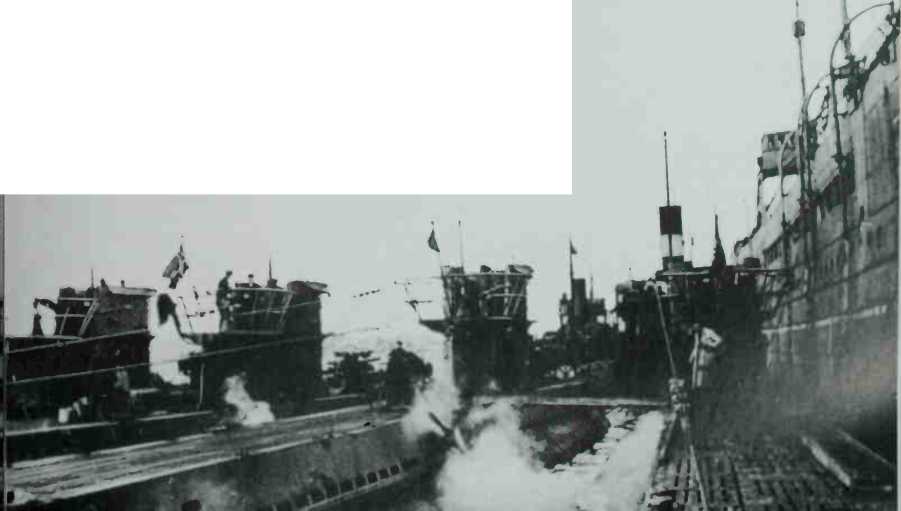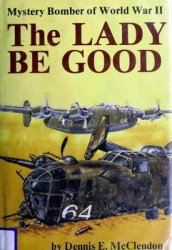R.
During World War I, German U-boats almost succeeded in severing the supply routes from America and Canada to Britain. Without shiploads of goods, including fuel, from overseas the prospects for Britain were dim.
V‘
Left: Freezing weather in the Atlantic had the crew thawing out anchor chains. Below: U-boats on far-flung missions were dependent on supply ships.

Unable to support herself, Britain had for years relied on trade to keep her people fed, clothed and employed. If those vital links were cut during conflict, Britain would have been forced to capitulate - or see her population starve. Now in World War 11 the grim scenario was being played out once more. U-boats, in tandem with the German Navy or Kriegsmarine, were set to exploit the Achilles heel of the British Empire. Thev nearly succeeded.
Both Britain and Germany’s navies had been unprepared for war. Navy-chief Erich Raeder had far fewer U-boats at his disposal than he would have liked. In addition, the submarine construction programme w-as virtually at a halt. Hitler had little faith in his navy and earmarked only limited resources for it.
Meanwhile, Britain had a mighty fleet of Royal Navy vessels and numerous merchant ships. But the Admiralty appeared to have devoted little time or effort in the years between the wars in looking at ways to counter the U-boat threat. It still believed in the outdated notion that wars could be won with offensive action by battleships.
Putting their lives on the line alongside sailors in the Royal Navy were volunteer merchant seamen. It was their job to ferry the all-important supplies to Britain, mostly from America and Canada across the Atlantic. Instantly, they became targets for the roaming U-boats. Their pay was ?9 a month with an additional two shillings and sixpence in danger money.
Instantly, the convoy system in which merchant ships banded together and travelled under armed




 World History
World History









